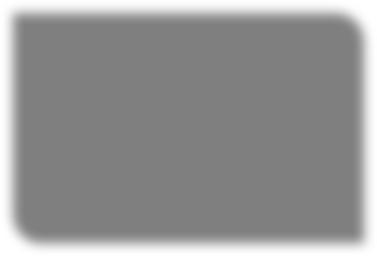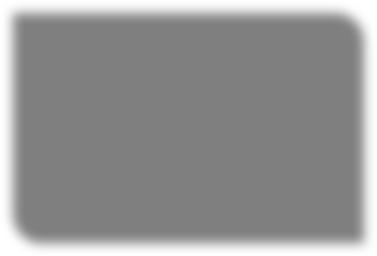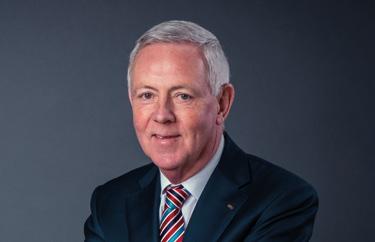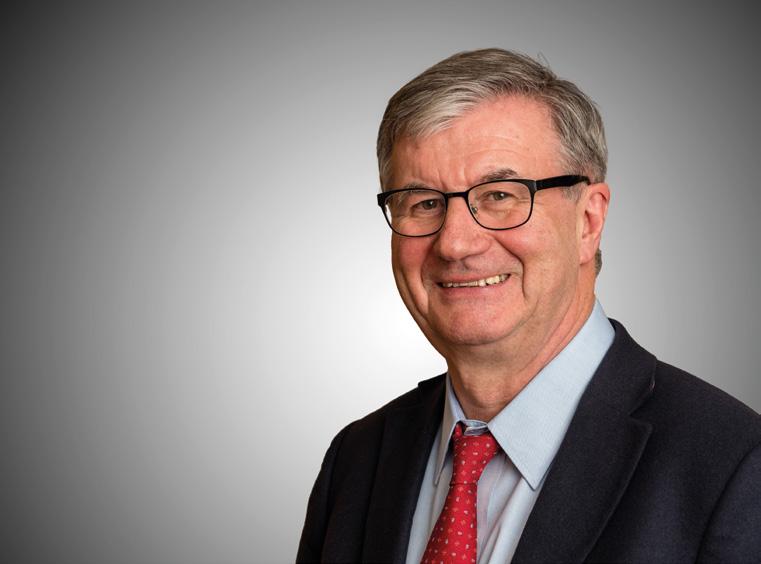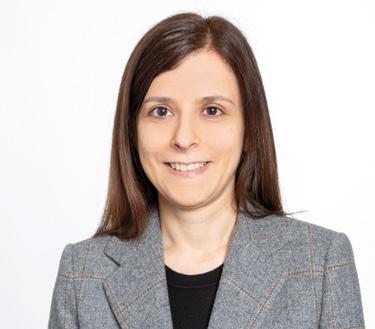European Urology Today
EAU21 Congress News
8-12 July 2021 Virtual
36th Annual Congress of the European Association of Urology Vol. 33 No. 3 - June/July 2021
Will we ever meet in person again? YES! In the lead up to EAU21 Virtual, the EAU Executive Committee looks back at the past 1.5 years In this special EAU21 congress edition of European Urology Today, we open with a brief look back at the extraordinary year we have seen. We asked the members of our Executive Committee what their experiences have been and what their expectations are for the future of our association and for your daily clinical practices. IIn the past 18 months, the EAU Executive Committee has not met in person due to all travel restrictions, but that hasn’t stopped its members from successfully developing educational programmes, stimulating scientific exchanges, and transforming existing services for our members to the fully digital era. Before they will, hopefully, come together in our studio from where multiple sessions of the 36th Annual EAU Congress (EAU21 Virtual) will be broadcast, all five executive members, Profs. Christopher Chapple (GB), Hein Van Poppel (BE), Arnulf Stenzl (DE), Manfred Wirth (DE), and Jens Sønksen (DK), share their personal lessons learned and their thoughts on what the lasting impact of the pandemic will be.
“Our physical meetings were cancelled, so we had to make the shift to virtual meetings really fast. In no time, the team at the Central Office had built a completely new platform from scratch and we were giving webinars twice a week before we knew it.” Prof. Chapple agrees that by the use of tele- and videoconferencing the EAU has managed to keep up to date with everything and continued contributing to its sister associations across the world. “Within the association, we have managed to continue to work on our objectives thanks to the amazing support from the Central Office, who have had significant challenges but have shown great resilience in adapting our complete portfolio to a virtual setting.” Prof. Van Poppel adds that working hours have intensified. “Instead of travelling to a nice place to attend a meeting for one day and work together for the day having a nice dinner, we now do virtual meetings with the same agenda in a couple of hours, preferably in the weekends or evenings. So we worked harder, more efficiently.”
No travel The past 1.5 years will be remembered as, among other things, the time of no travel, which is quite unusual for this quintet used to travelling around the world. Prof. Chapple commences: “Not seeing my patients at the hospital but having to deal with them by either tele- or videoconferencing was one of the major issues. Even though one can do teleand videoconferences, it can be quite frustrating not being able to examine and treat patients and just to see the waiting lists for surgery growing.”
Lessons learned In terms of lessons learned, Prof. Wirth is very clear: “We can omit a lot of travelling. It saves you time and money, it is better for our environment and will make our lives easier in a lot of ways. Also when looking at education, the online equivalents offer many advantages.” Prof. Van Poppel, too, has fully adapted to working remotely and has integrated virtual meetings in his ‘new normal’ professional life.
Prof. Wirth states that not seeing friends and family was the biggest sacrifice. “Especially my grandchildren who don’t live nearby. Luckily there is Facetime, but it is just not the same.” For Prof. Stenzl, the world came through his 15” screen of his computer. “Throughout the pandemic, I spent almost every weekend at home, meeting friends and colleagues virtually. I became much humbler about the good things in life such as live concerts, theatres, movies, visits to friends, and parties, which were part of our daily lives but all of a sudden were not possible anymore.”
Prof. Sønksen, however, is cautious: “The stop of physical meetings has led to a deteriorating and poor education of the residents, at least around me. We should be better prepared for crises like this in the future. Especially when you look at education, not only within the EAU but urology in general, you should really have some kind of back-up for your educational plans.” Prof. Chapple foresees an enormous problem over the next few years in terms of catching up on the backlog as well as maintaining the management of existing problems within our clinical setting.
Prof. Van Poppel adds that he learned how to read from people’s eyes what they think and what their state of mind is. “Whether they are happy, disappointed, the eyes will tell it all.” Also Prof. Sønksen mentions the psychological aspects of the pandemic. “I have noted a lot of uncertainty, because you didn’t know what the future was going to bring.”
Another personal lesson learned by Prof. Stenzl relates to adapting to a new way of interacting during virtual meetings. “I’ve learned to always think about putting on the microphone before speaking, which made me more cautious of contributing with useful comments, clearing the bookshelf behind your head before turning on the camera and not to yawn when your camera is on.”
To the question how the pandemic has affected our society, all agree that this disruption made everyone more critical of how to spend their time and what formats are the most beneficial financially and in terms of efficiency in gaining knowledge. “From the very beginning, it was clear that we had limited possibilities to plan because of the many unknown factors”, says Prof. Sønksen.
All men are positive about our future and see many possibilities in the digital front. Both Prof. Chapple and Prof. Stenzl recognise that the use of tele- and videoconferencing with patients will remain in the future as it facilitates treatment, particularly for monitoring and follow-up. “There is an increasing number of companies organising online doctor visits”, says Prof. Stenzl. Prof. Wirth adds:
The EAU Executive Committee: Prof. Arnulf Stenzl, Prof. Hein Van Poppel, Prof. Manfred Wirth (standing from left to right), Prof. Jens Sønksen, and Prof. Christopher Chapple (sitting from left to right). Photo taken in 2019.
“Telemedicine is not only here to stay, it will also improve the patient communication as it is much easier and faster.” Many patients seem to be happy with a Zoom meeting with their doctor, according to Prof. Sønksen. Prof. Wirth agrees: “They benefit from easier second opinions and quicker access to the right treatment.” The improved access to education at a global scale is another aspect that, according to all executive members, will not likely disappear when we go back to normal. Prof. Stenzl says: “Many of the smaller topic-oriented educational meetings and masterclasses will be virtual and shorter.” Prof. Wirth is also convinced that online education will increase. “We will have less face-to-face meetings, and smaller meetings will be more and more transformed into an online equivalent, allowing us to reach a broader audience outside Europe.”
To the final question whether we will ever meet in person again, the answer is a wholeheartedly yes! We will travel less, but we need to meet at a regular basis, although not completely in the same way as we used to do, according to Prof. Van Poppel. “We have had a fantastic number of years where everything was possible, and we must be grateful for that. However, the ‘old normal’ is very unlikely to ever come back. Hugs, cuddles, and kisses will be gone for ever.” Prof. Chapple concludes that, “Over the last year, we have learned a tremendous amount and that will be reflected in the upcoming virtual Annual Congress.” “With a scientific programme that will not make any concessions compared to our previous physical congresses, we look forward to welcoming many colleagues from all around the world to EAU21 while we also hope to meet each other in person again next year.”
Provide sustainable patency.
Resonance
®
M E TA L L I C U R E T E R A L S T E N T
This is a special EAU21 Virtual edition of European Urology Today (EUT). EAU21 Virtual will be taking place from 8 to 12 July 2021 and promises to be one of the scientific highlights of the year. This 48-page EUT features all quality scientific content written by speakers, interviews with award winners, the full scientific programme, including all the sessions coming live from our studio, and much more.
MEDICAL
Some products may not be available in all markets. © COOK 12/2018
June/July 2021
URO-D44122-EN-F
EUT Congress News
1



